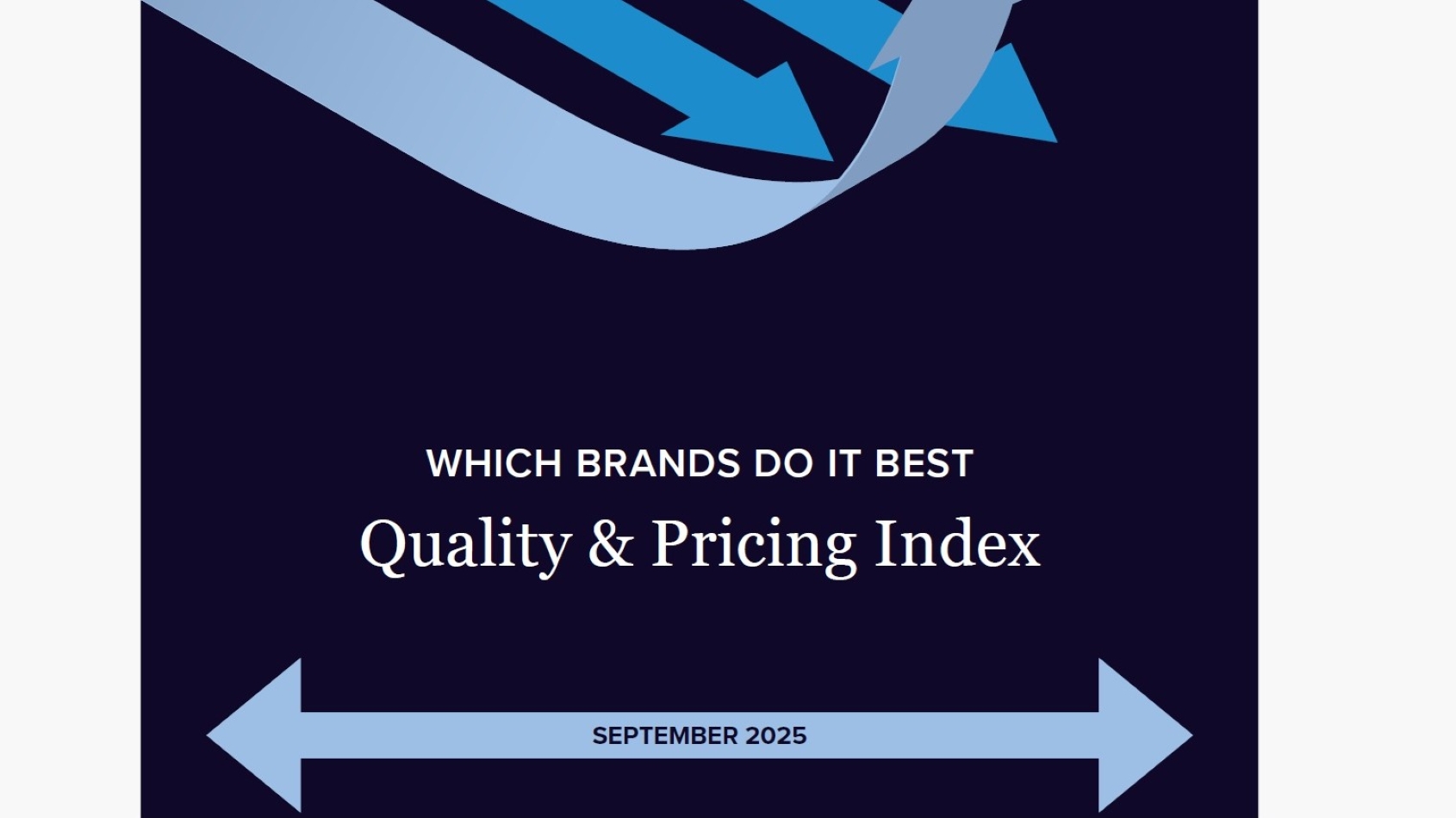DCG’s new index shows Buick as top brand for quality, value

Image courtesy of the Dave Cantin Group.
By subscribing, you agree to receive communications from Auto Remarketing and our partners in accordance with our Privacy Policy. We may share your information with select partners and sponsors who may contact you about their products and services. You may unsubscribe at any time.
What are car shoppers looking for in a vehicle?
According to the Kaiser Associates 2025 Midyear Dealership Survey — part of the Dave Cantin Group’s Market Outlook Report Midyear Update — reliability and affordability are firmly entrenched as the top two criteria considered most important by car buyers.
Given that, the dealership M&A advisory firm created a new metric that combines those factors to rate the value of vehicle brands to their customers.
The result is DCG’s Vehicle Quality & Pricing Index, which debuted last week in a report designed to show which brands are best positioned to deliver what car shoppers want.
The answer to that might be surprising to many: it’s Buick. The General Motors brand outpaced foreign competitors Lexus, Mazda and Toyota for No. 1 in the brand rankings, based on data from the J.D. Power U.S. Vehicle Dependability Study and Cox Automotive/Kelley Blue Book’s average retail transaction prices.
DCG converted those statistics into a 100-point scale, with the top performer in each category receiving a score of 100 and other brand scaled proportionally.
Subscribe to Auto Remarketing to stay informed and stay ahead.
By subscribing, you agree to receive communications from Auto Remarketing and our partners in accordance with our Privacy Policy. We may share your information with select partners and sponsors who may contact you about their products and services. You may unsubscribe at any time.
Buick recorded a near-perfect 97.72, well ahead of Mazda (90.92), Toyota (81.42), Kia (75.87) and Subaru (74.73) among mainstream brands. Lexus (95.52) led luxury brands, followed by Cadillac (68.27), BMW (65.70), Genesis (65.44) and Infiniti (64.95).
The report said Buick’s rise was powered by a 7% drop in average transaction price over the past year and the lowest reported problems per 100 vehicles in the J.D. Power study, leading to “one of the industry’s strongest market-share gains” in the first half of 2025.
“In the first half of the year, we have seen Buick, Mazda, Toyota and Kia gaining share — and those are the brands at the top of our QPI,” said DCG partner and chief of staff Brian Traugott, who led the QPI project.
Among the luxury brands, DCG said Lexus stood out by proving “long-term dependability and premium positioning can coexist,” while Cadillac was lifted by an “EV-led, more affordable move into luxury.”
DCG’s report said several brands, including Ford, Chevrolet and GMC, were pulled down in the rankings by their reliance on full-size trucks — among the costliest vehicles in the market.
“Today’s premium truck prices are a drag on affordability,” Traugott said. “Many people are saying, ‘If this compact SUV or sedan does what I want it to do, maybe I don’t need to go up in price to that full-size truck.’”
Traugott pointed out a shift away from those larger vehicles and cost-conscious buyers was noted in DCG’s January Market Outlook Report, adding that trend has continued in 2025 as consumers feel less confident about the U.S. economy.
Land Rover posted the lowest score of any brand at 11.48, while Stellantis’ brands — Chrysler (30.57), Jeep (28.07) and RAM (23.69) — ranked at the bottom among the 16 mainstream brands studied.
“It’s unsurprising but validating to our research,” Traugott said. “Part of the reason people have complained about these brands, Jeep in particular, is that the company went outside its price sweet spot. In addition, there’s that commonly heard slogan among dealers: The Jeep Wrangler is a Teflon brand, but it’s always in the shop.”
The full report can be downloaded here.


